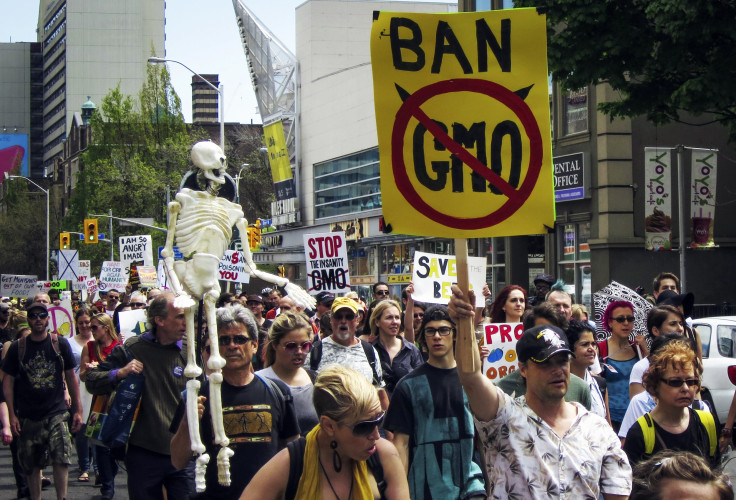Genetically Modified Crops: Over 100 Nobel Laureates Urge Greenpeace To Stick To Science, End GMO-Bashing

A team of over 100 Nobel laureates have, in an open letter to Greenpeace, urged the environmental group to “cease and desist” its campaign against genetically modified crops and food. In the letter, released Thursday, the Nobel laureates singled out Greenpeace’s opposition to “Golden Rice” — a strain of genetically modified rice that contains a gene that boosts the production of vitamin A precursor beta-carotene.
“Organizations opposed to modern plant breeding, with Greenpeace at their lead, have repeatedly denied these facts and opposed biotechnological innovations in agriculture. They have misrepresented their risks, benefits, and impacts, and supported the criminal destruction of approved field trials and research projects,” the scientists, including molecular biologist James Watson — who was honored in 1962 for co-discovering the structure of the DNA, wrote in the letter.
“We urge Greenpeace and its supporters to re-examine the experience of farmers and consumers worldwide with crops and foods improved through biotechnology, recognize the findings of authoritative scientific bodies and regulatory agencies, and abandon their campaign against ‘GMOs’ in general and Golden Rice in particular,” the scientists said.
Golden Rice, developed in the 1990s, contains an artificially inserted gene that produces beta-carotene, which is not produced in the naturally occurring variety. While proponents argue that it is crucial in the efforts to reduce vitamin A deficiency and childhood blindness among the poorest people living in sub-Saharan Africa and Asia, opponents allege that the GM-rice has the potential to contaminate existing crops.

“We call upon the governments of the world to reject Greenpeace's campaign against Golden Rice specifically, and crops and foods improved through biotechnology in general; and to do everything in their power to oppose Greenpeace's actions and accelerate the access of farmers to all the tools of modern biology, especially seeds improved through biotechnology,” the Nobel laureates wrote. “Opposition based on emotion and dogma contradicted by data must be stopped.”
Genetic modification of crops has long been a highly polarizing issue across the globe since it became common in the mid-1990s. According to a recent Pew survey, a majority of the general public in the U.S. — about 57 percent — believe that genetically modified food is generally unsafe to eat. However, an overwhelming 88 percent of the scientists surveyed state that GM food is generally safe to eat.
Moreover, in a report released in May, the National Academies of Sciences, Engineering and Medicine stated that GM crops appear to be safe to eat and do not harm the environment.
Greenpeace, however, has long spearheaded the campaign against any genetic modification of crops, which it argues is only driven by corporations seeking higher profits at the cost of environmental and human health.
“Corporations are overhyping ‘Golden’ rice to pave the way for global approval of other more profitable genetically engineered crops. This costly experiment has failed to produce results for the last 20 years and diverted attention from methods that already work,” Wilhelmina Pelegrina, a campaigner at Greenpeace Southeast Asia, said in a statement. “Rather than invest in this overpriced public relations exercise, we need to address malnutrition through a more diverse diet, equitable access to food and eco-agriculture.”
© Copyright IBTimes 2024. All rights reserved.






















